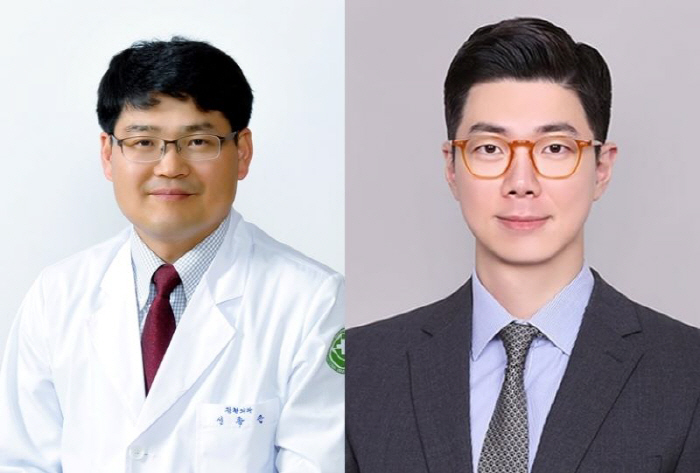Exosomes derived from bone marrow and discharge blood, effective in treating osteoarthritis
Jun 04, 2025
Hwasun Chonnam National University Hospital announced on the 4th that a knee joint team consisting of orthopedic professors Sun Jong-geun and Yang Hong-yeol won the Academic Encouragement Award at the 22nd Spring Conference of the Korean Society of Motor Stem Cell Regenerative Medicine in recognition of their research achievements in advanced regenerative medicine.
The award-winning paper presents innovative cell therapy strategies for the treatment of osteoarthritis by comparing the therapeutic efficacy of different mesenchymal stem cells-derived exosomes in osteoarthritis models: An In Vitro and Ex Vivo Analysis.
Exosomes are nano-sized endoplasmic reticulum secreted by cells and are attracting attention as key substances mediating the therapeutic effect of stem cells. It is in the spotlight as a next-generation regenerative medical technology because it can obtain a regenerative effect while reducing the risk of side effects from cell transplantation.
This study is characterized by a systematic comparative analysis of the therapeutic efficacy of exosomes extracted from different stem cells such as bone marrow, fat, and umbilical cord blood. The researchers closely analyzed the differences between each exosome in terms of chondrocyte protection, anti-inflammatory effect, and cartilage regeneration induction.
In particular, studies have confirmed that exosomes derived from bone marrow and umbilical cord blood have superior therapeutic efficacy compared to other types. This has been recognized for its academic value, suggesting the possibility of a new 'cell-independent therapeutic strategy' that can overcome the limitations of existing stem cell direct transplantation.
Professor Sun Jong-geun said, "This award is significant in that it is a study that presents a more effective and precise treatment approach for degenerative joint disease. We will continue to strive for regenerative medicine-based clinical research in the field of orthopedic surgery in the future."
The award-winning paper presents innovative cell therapy strategies for the treatment of osteoarthritis by comparing the therapeutic efficacy of different mesenchymal stem cells-derived exosomes in osteoarthritis models: An In Vitro and Ex Vivo Analysis.
Exosomes are nano-sized endoplasmic reticulum secreted by cells and are attracting attention as key substances mediating the therapeutic effect of stem cells. It is in the spotlight as a next-generation regenerative medical technology because it can obtain a regenerative effect while reducing the risk of side effects from cell transplantation.
This study is characterized by a systematic comparative analysis of the therapeutic efficacy of exosomes extracted from different stem cells such as bone marrow, fat, and umbilical cord blood. The researchers closely analyzed the differences between each exosome in terms of chondrocyte protection, anti-inflammatory effect, and cartilage regeneration induction.
In particular, studies have confirmed that exosomes derived from bone marrow and umbilical cord blood have superior therapeutic efficacy compared to other types. This has been recognized for its academic value, suggesting the possibility of a new 'cell-independent therapeutic strategy' that can overcome the limitations of existing stem cell direct transplantation.
Professor Sun Jong-geun said, "This award is significant in that it is a study that presents a more effective and precise treatment approach for degenerative joint disease. We will continue to strive for regenerative medicine-based clinical research in the field of orthopedic surgery in the future."
|
This article was translated by Naver AI translator.














